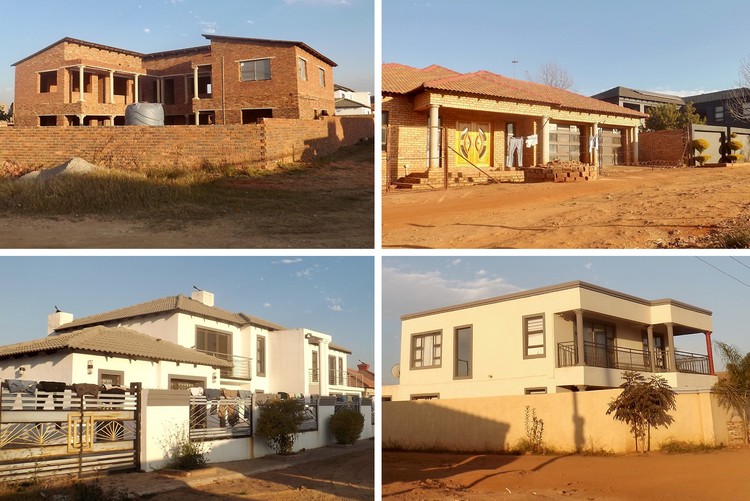
23 June 2025
Some of the homes in Leeuwfontein, east of Pretoria, currently without any services. The house owners want the area to be recognised and formalised by the City. Photo: Warren Mabona
The City of Tshwane has formed a mayoral sub-committee to probe 17 illegal suburbs.
City spokesperson Lindela Mashigo said that in most cases formal township applications were never lodged and environmental and planning approvals were bypassed. The developments are on both council-owned land and private property.
Mashigo said the investigation started on 14 May. But GroundUp reported on the illegal status of one such suburb, Leeuwfontein near Mamelodi, years ago. City spokesperson Selby Bokaba told us in July 2023 that Tshwane had launched an investigation.
At the time, we found people who had paid R80,000 for plots and built spacious houses. Some had been living there for more than five years but without tap water, electricity, waste collection or road maintenance.
They bought their plots from Mirror Developers owned by Malesela Marema but never received title deeds. Marema blamed the City for not cooperating with him to formalise the development. He said he was willing to surrender the ownership of Leeuwfontein to the City as he was unable to provide services.
Mashigo said the 17 illegal townships were different from informal settlements in that landowners had permitted formal houses to be built on their properties. But these unplanned developments have inadequate provision for services, raising safety and other concerns.
Mashigo said the mayoral sub-committee would review the legal implications, consult the communities and the landlords, and draft a policy for dealing with such illegal developments.
Mashigo said the City was providing rudimentary water services and chemical toilets.
Leeuwfontein resident Mapule Masigo told GroundUp she bought four stands from Marema at a cost of R30,000 each in 2009.
“I have been living here since 2013,” she said. “But we still get water from tanks on our streets supplied by the municipality. The municipality must conclude its investigation and formalise this place.”
Zanele Motau said she bought her plot for R75,000 in 2012.
“I spent a lot of money to buy my stand,” said Motau. “But I have to push a wheelbarrow and fetch water in the street every day. We need water, electricity and other basic services.”
Alfred Makhalemele bought his plot for R30,000 in 2009. He worries that without legal title, his children will not inherit.
“I have a stand but it’s as if I live in a squatter camp,” he said.